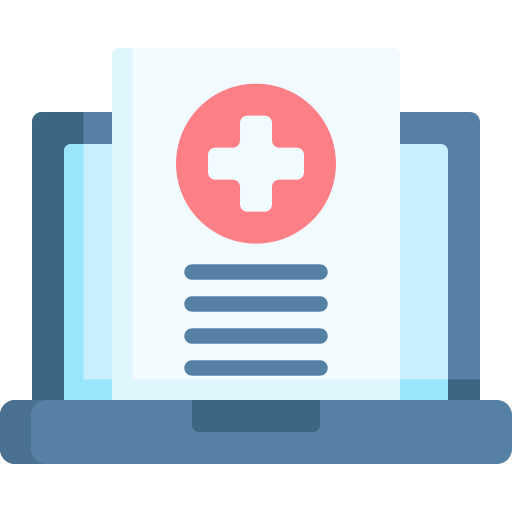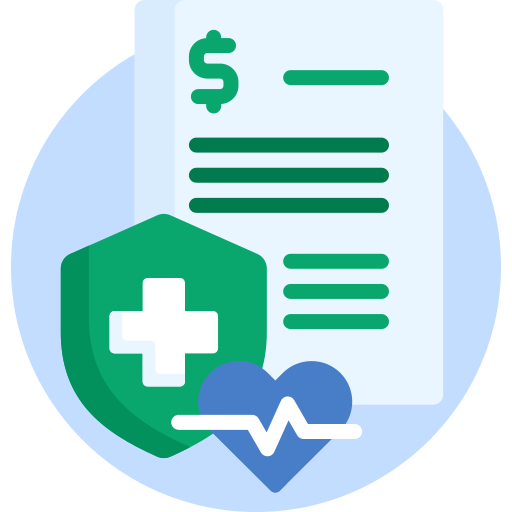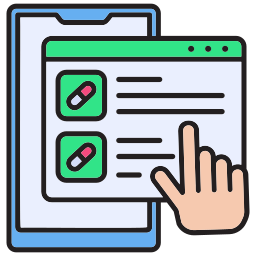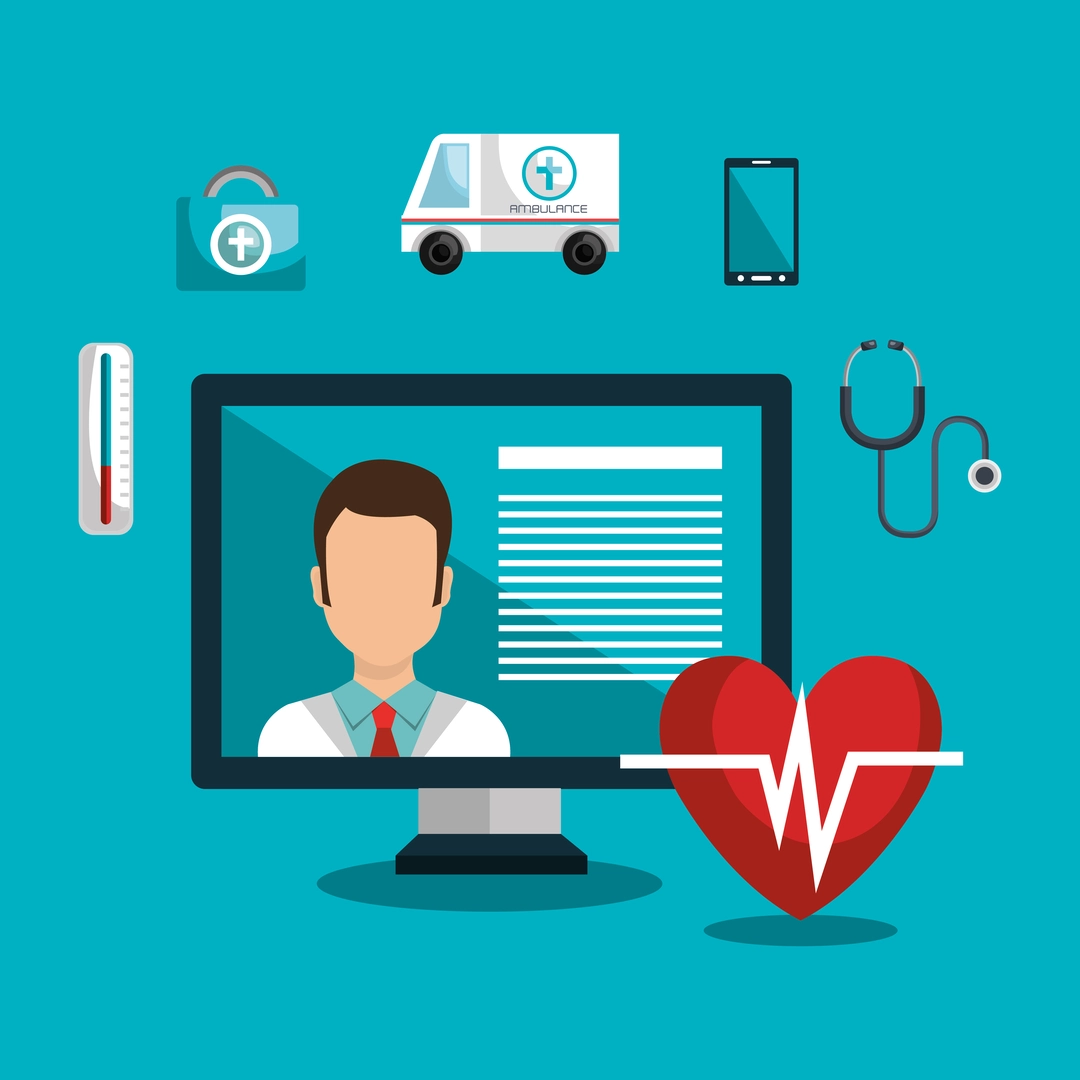Healthcare systems generate massive amounts of patient data daily, but without Epic FHIR integration, this information often remains siloed. Hospitals, clinics, and specialists use different EHR systems, making data exchange difficult and slowing interoperability. A lack of seamless connectivity increases administrative burdens, delays decision-making, and can impact patient safety when providers lack immediate access to critical health records. Integrating FHIR enables secure, real-time data exchange, ensuring better care coordination, streamlined workflows, and improved patient outcomes.
FHIR has emerged as a standardized framework to address these challenges, making Epic EHR integration more efficient. It enables secure data exchange between healthcare systems, ensuring that information flows smoothly between providers, payers, and patients. Using standardized APIs, FHIR simplifies integration with external applications, allowing healthcare organizations to connect Epic with third-party tools, mobile apps, and external data sources.
Stronger interoperability leads to better patient care, improved operational efficiency, and easier regulatory compliance. Clinicians can access complete patient histories without delays, reducing redundant tests and streamlining treatment decisions.
Hospitals can optimize workflows by automating data sharing, cutting down on manual entry errors. Regulatory requirements such as the 21st Century Cures Act push for better interoperability, making Epic FHIR integration beneficial and essential for healthcare organizations using Epic.
Let's get to know the traditional challenges first to understand FHIR integration:
Challenges in Traditional Healthcare Data Exchange
Epic FHIR integrates healthcare data exchange, addressing fragmented systems, slow interoperability, and security concerns. It streamlines interoperability by enabling secure, standardized access to critical health records, improving patient care, and reducing administrative workload. This eliminates inefficiencies in care coordination and clinical decision-making. Let’s understand these challenges in detail below:
❗Siloed Systems & Data Fragmentation
Healthcare organizations often operate on different EHR platforms, making data exchange complex and inefficient. With unstructured formats, providers face issues like manual data entry, duplication, and delays in accessing critical patient information. This fragmentation disrupts care coordination, leading to gaps in treatment and increased administrative burden.
❗Regulatory Compliance & Data Security Concerns
Ensuring compliance with HIPAA, the ONC Cures Act, and GDPR adds another layer of complexity to healthcare interoperability. Secure APIs, role-based access controls, and encryption protocols are necessary to protect sensitive patient data. Any security gaps can result in legal consequences, financial penalties, and loss of patient trust.
❗Interoperability Issues
Different EHR systems often struggle to communicate due to variations in data structures and outdated integration methods. This lack of compatibility forces providers to rely on workarounds that slow down workflows. Standardized data exchange protocols like Epic FHIR are crucial in bridging these gaps, allowing smoother data sharing between systems.
❗Security Concerns
As digital healthcare expands, so do cybersecurity threats. Unauthorized access, data breaches, and phishing attacks pose significant risks to patient privacy. Strong authentication measures, data encryption, and continuous monitoring are essential to maintaining system integrity. Healthcare providers must invest in robust security frameworks, like Epic FHIR to protect sensitive information.
❗Budget Constraints and Effective Planning
Implementing Epic FHIR integration requires financial investment in technology, training, and ongoing maintenance. Smaller healthcare facilities often face budget constraints that make large-scale IT upgrades challenging. Strategic planning, phased implementation, and prioritizing essential functionalities can help organizations make the most of their resources without straining financial limits.
❗Choosing The Right IT Vendor
Selecting a vendor for Epic FHIR integration involves evaluating technical expertise, compliance with industry standards, and long-term support capabilities. Healthcare organizations must assess whether a vendor can provide scalable solutions, seamless data exchange, and reliable security measures. Partnering with a trusted provider ensures smooth implementation and ongoing system optimization.
How FHIR Enables Seamless Integration with Epic EHR?
Integrating Epic EHR with FHIR simplifies data exchange by standardizing communication between systems. This approach improves interoperability, allowing healthcare providers to access accurate patient information when needed.
✅ FHIR-Based APIs for Real-Time Data Exchange
FHIR-based APIs enable structured and standardized data exchange across multiple healthcare systems, ensuring patient records, lab results, and treatment histories remain consistent across providers. By utilizing a modular framework, Epic FHIR organizes data into resources such as patient demographics, observations, medications, and encounters. This structure simplifies interoperability, allowing different systems to communicate without complex integrations.
Epic FHIR capabilities provide healthcare organizations with standardized APIs that support real-time data access and updates. With well-defined resources, providers can retrieve patient information, update clinical records, and facilitate smooth data-sharing between hospitals, clinics, and third-party applications. This approach improves care coordination and streamlines workflows, reducing manual data entry and administrative overhead.


✅ FHIR & Epic App Orchard: Unlocking Innovation
Epic’s App Orchard provides a gateway for developers to build and integrate FHIR-based applications within the Epic ecosystem. By utilizing standardized APIs, healthcare organizations can extend Epic’s functionality without modifying the core system. This open framework allows for secure data exchange, helping providers streamline workflows and improve patient care.
Real-world applications of FHIR integration through Epic App Orchard include patient engagement tools that offer real-time access to medical records, AI-driven analytics that help identify trends in population health, and telehealth apps that support virtual consultations. These innovations enable healthcare organizations to customize their digital tools while maintaining compliance and interoperability.
✅ Epic SMART on FHIR: A Game-Changer for Secure Interoperability
SMART on FHIR is transforming how healthcare applications interact with Epic FHIR, providing a standardized and secure way to authenticate users and connect third-party apps. By leveraging Epic FHIR, healthcare providers can ensure seamless data security and compliance while integrating new tools without disrupting existing workflows. This approach simplifies data exchange, making it easier for clinicians and patients to access real-time health information, improving care coordination and decision-making.
For healthcare organizations, SMART on FHIR Apps opens the door to improving patient and provider experiences. From clinical decision support tools to claims automation and telehealth, organizations can integrate specialized apps that align with their operational needs. Real-world examples include FHIR-powered Epic apps streamlining prior authorization, automating billing processes, and supporting virtual care, ultimately making healthcare more efficient and accessible.
Related Read: Decoding SMART on FHIR for Healthcare Interoperability

What is Covered in this Webinar?
✅ Overview of Epic Integration
✅ Introduction to SMART on FHIR
✅ Addressing Interoperability Challenges
✅ Real-World Solutions
Who Will Benefit from this Webinar?
📌 Healthcare Professionals and Administrators
📌 Decision-Makers
📌 Digital Health Startups
📌 Health IT Professionals
✅ Improving Provider & Patient Experience
AI-driven clinical decision support and predictive analytics bring efficiency to healthcare workflows. By integrating Epic FHIR, providers can access real-time patient insights, helping them make informed decisions faster. From identifying potential health risks to recommending treatment plans, AI-powered automation reduces the time spent on manual data analysis, allowing clinicians to focus more on patient care.
FHIR-powered automation in claims and billing simplifies administrative processes, minimizing errors and delays. Standardized data exchange between Epic and insurance systems streamlines claim submissions, accelerates reimbursements, and reduces manual intervention. Providers benefit from a smoother billing process, while patients experience fewer delays in insurance approvals and out-of-pocket cost estimations.
Real-World Use Cases of Epic FHIR Integration
1️⃣ Remote Patient Monitoring & Telehealth
Integrating wearables, mobile health apps, and IoT devices with Epic FHIR allows healthcare providers to access real-time patient data. This connectivity helps track vitals, medication adherence, and chronic conditions without requiring in-person visits. Physicians can make informed decisions based on continuously updated health metrics, improving care coordination and early intervention for high-risk patients.
Ochsner Health has successfully integrated remote monitoring devices with Epic FHIR to track patients with chronic conditions like hypertension and diabetes. Their digital medicine program allows providers to monitor patients’ vitals remotely, adjust medications based on trends, and reduce hospitalizations.
2️⃣ AI-Powered Clinical Decision Support
Combining AI-driven analytics with Epic FHIR enables smarter decision-making in clinical decision support. Machine learning models analyze clinical data, lab results, and imaging studies to identify patterns that assist in diagnosing diseases and recommending treatment plans. By using predictive analytics, healthcare providers can anticipate complications and adjust care strategies accordingly, improving patient outcomes.
Mount Sinai Health System integrates AI-driven clinical decision support with Epic FHIR to detect early signs of heart failure. Their predictive model analyzes EHR data, including patient history, lab results, and imaging studies, to identify individuals at risk. This system helps cardiologists intervene earlier, reducing hospital readmissions and improving long-term patient outcomes.
3️⃣ FHIR-Based Patient Portals & Engagement Apps
Giving patients access to medical records through Epic FHIR portals and mobile apps improves transparency and engagement. Patients can review test results, track prescriptions, and receive personalized health recommendations from their providers. Secure messaging features also allow direct communication with clinicians, making it easier to address concerns and stay informed about their treatment plans.
UC San Diego Health integrated FHIR-based patient portals with Epic MyChart, allowing patients to access real-time medical records, communicate with doctors, and manage prescriptions. This initiative has improved patient engagement by providing easy access to critical health information through a secure and user-friendly platform.
Business Impacts of Prioritizing Epic FHIR Integration
Prioritizing Epic FHIR integration streamlines data exchange, reduces administrative burden, and improves care coordination. A well-integrated system ensures providers have real-time access to critical patient information, leading to better clinical outcomes. Let's explore a few key points highlighting how Epic FHIR integration can drive business priorities.
⏩ Faster Data Access
Real-time access to patient data minimizes delays in clinical workflows, reducing the need for manual data entry and administrative tasks. Epic FHIR integration allows healthcare providers to retrieve updated medical records, lab results, and medication histories without waiting for faxed reports or external requests. Automating these processes improves operational efficiency and helps healthcare organizations cut unnecessary administrative costs.
📈 Improved Patient Outcomes
Accurate and timely data exchange between healthcare systems allows providers to make well-informed treatment decisions. Epic FHIR integration ensures that critical patient information, such as allergies, pre-existing conditions, and medication interactions, is readily available. This improves coordination among specialists, reducing errors, and improving overall care quality. When healthcare teams have access to complete and up-to-date records, they can offer safer and more effective treatments.
🔮 Scalability & Future-Proofing
Compliance with evolving EHR mandates and interoperability standards is essential for long-term operational success. Epic FHIR integration aligns with industry-wide regulations, ensuring healthcare systems remain adaptable as new policies and technologies emerge. By implementing a structured approach to data exchange, providers can seamlessly integrate future advancements in digital health, making it easier to expand services and adopt new healthcare innovations.
How HealthConnect CoPilot Can Help with Epic FHIR Integration?
HealthConnect CoPilot simplifies Epic integration by ensuring secure and efficient data exchange. It supports hospitals, providers, and health tech startups in connecting remote monitoring tools, AI applications, and Epic EHR systems.
Pre-built APIs reduce development time, while custom solutions enable patient engagement and real-time data exchange. The platform integrates Epic App Orchard apps and supports specific interoperability needs for seamless connectivity.
With a strong focus on security and compliance, HealthConnect CoPilot meets HIPAA, ONC, and GDPR standards. SMART on FHIR authentication and end-to-end encryption ensures data integrity and regulatory compliance.
- What does FHIR stand for, and why is it important for Epic EHR integration?
FHIR (Fast Healthcare Interoperability Resources) is a standard developed by HL7 for exchanging healthcare data electronically. It simplifies Epic EHR integration by enabling secure, real-time data sharing between different systems and applications.
- What’s the difference between HL7 and FHIR?
HL7 is a broader set of standards for healthcare data exchange, while FHIR is a modern standard within HL7 designed for web-based interoperability. FHIR uses APIs and standardized data formats, making it more flexible and developer-friendly than traditional HL7 protocols.
- Where can I get help with integrating Epic FHIR solutions?
Many healthcare IT consultancies and Epic-certified vendors offer FHIR integration support. Epic also provides developer resources through its App Orchard and documentation for FHIR implementation.
- What makes HealthConnect CoPilot ideal for Epic FHIR integration?
HealthConnect CoPilot streamlines Epic FHIR integration with pre-built APIs, real-time data synchronization, and compliance with healthcare security standards. It reduces development time and simplifies interoperability.
- What is SMART on FHIR Epic?
SMART on FHIR is a framework that allows third-party applications to integrate with Epic EHR using FHIR APIs. It enables secure, plug-and-play apps to access and interact with patient data within Epic.

Pravin Uttarwar, CTO of Mindbowser
As the CTO of Mindbowser, a healthcare-focused software development company, I am dedicated to delivering cutting-edge digital solutions that transform patient care and operational efficiency. With over 16 years of experience and as an MIT alumnus, I specialize in healthcare interoperability, FHIR-compliant systems, and AI-powered platforms, crafting scalable products and architectures tailored to the unique needs of healthcare providers and enterprises.
I have spearheaded the development of over 100 products and platforms, guiding them from concept to full-fledged solutions. My expertise extends to scaling remote tech teams, driving EHR integrations, and building secure, cloud-native healthcare solutions. By shaping technology visions and roadmaps, I help clients achieve long-term growth and success in the rapidly evolving healthcare landscape.
HealthConnect CoPilot enabled us to access real-time patient health data through integration with Apple HealthKit, enhancing care delivery while maintaining HIPAA compliance. This led to personalized care and improved outcomes for patients.

AI-enhanced Obstetrics Clinical Decision Support Platform
HealthConnect CoPilot's integration with Epic's Hyperspace has transformed our workflow. Automated post-delivery examinations and HL7 protocol use ensure accurate updates to Epic. Their expertise empowers informed decision-making in childbirth

Top Provider for Customized Healthcare Solutions
HealthConnect CoPilot's helped us to integrate with leading tracking devices such as Apple Watches and Fitbit. This integration enables effortless syncing of health data, providing users with real-time insights displayed directly on our flagship products: smart mirrors and digital calendars.

A Provider of Customizable Display Solutions
Post a comment Cancel reply
Related Posts
FHIR Versions: The Past, The Present & The Future
The Fast Healthcare Interoperability Resources (FHIR) standard has revolutionized healthcare data exchange, enabling seamless interoperability…
What Are CDS Hooks? A Simple Guide for Healthcare Providers
CDS Hooks are changing how clinical decision support (CDS) works inside EHRs, bringing real-time, context-aware…
The Challenges and Benefits of EHR Integration for Health Tech Companies
As digital health companies continue to innovate and develop cutting-edge healthcare solutions, one of the…
Streamlining Behavioral Healthcare with Epic EHR Integration
Behavioral healthcare providers are facing an increasing demand for streamlined systems that can integrate multiple…
How A Maternal Health Startup Is Revolutionizing Charge Capture in Epic?
Helping Moms Shouldn’t Involve Wasting Time or Resources Maternal health startups are doing some of…
EHR Integration for Diabetes Management: A Scalable Solution for Modern Healthcare Platforms
Managing chronic diseases like diabetes requires consistent care, personalized treatment, and uninterrupted access to patient…









